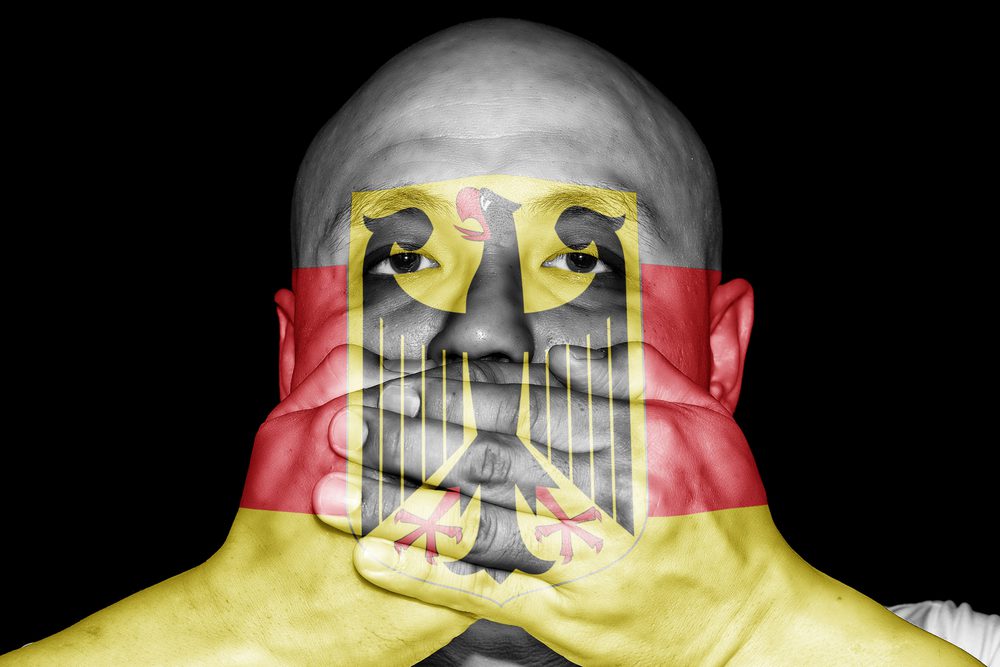
On October 21st, German citizens woke to a country where to condoning, denying, or grossly trivializing “genocide, crimes against humanity, or war crimes” will be punishable by up to three years in prison.
The night before, the German parliament passed—in what’s been described as a cloak-and-dagger action—an amendment to paragraph 130 of the penal code (incitement of the people). The amendment marks the implementation of a 2008 EU decision to combat racism and was passed with votes of all three parties of the German ‘traffic light’ coalition (SPD, FDP, and the Greens), as well as of the CDU. Germany’s second chamber, the Bundesrat, will have to agree on November 25th before the law comes into force.
Until now, it was only the denial and trivialization of the Holocaust that was punishable by paragraph 130. Now, a new section has been added making the denigration or denial of any crimes against humanity legally punishable. The exact definition of what may be considered “suitable” to “disturb the public peace,” or a “gross trivialization” lies with the lawyers and courts.
The remarkable expansion of the law dissolved the qualification of ‘genocide’ as relating to a specific event in German history, and it eliminated the prerequisite that such a genocide, or war crime, needs to be “established by a court.” This effectively means that expressing doubts against unverified claims may be punishable, as Mario Thurnes explains in the German newspaper Tichys Einblick:
One of the oldest wisdoms about war is that truth is its first casualty. Disinformation has always been part of military strategies. If a neutral journalist adheres to this rule and doubts the account of one of the two warring parties that the other side has committed a war crime, he puts himself in the hands of the prosecution. If the responsible prosecutor accepts the war party’s claim as true, the journalist must face the inconveniences of criminal proceedings.
Even left-leaning German newspapers like taz bemoaned the nature and secrecy of the amendment, stressing that the amendment came “unannounced” and without any prior parliamentary discussion. And while the Ministry of Justice stressed that the amendment has nothing to do with the war in Ukraine, several newspapers reported that this new law would make the questioning of war crimes—as reported from both sides of the conflict—punishable, even if the crimes under question are not yet independently confirmed.
The Armenian genocide raises another event in which the degree of offense is contested by different sides, and because of that, could very likely bring legal trouble to objectors. It is, in fact, an event that is denied by many Turkish immigrants in Germany. Depending on which side the respective prosecutor chooses, such a debate could now be considered a criminal offense. Thus the law opens up possibilities for political abuse and persecution of unwanted opinions.
The amendment received support from the ruling coalition, the CDU, and the Left; only the AfD opposed the change. The only contribution to the parliamentary discussion came from the AfD’s Stephan Brandner, who decried the process as “deeply undemocratic and outright embarrassing to all other parties.” He called the amendment the creation of a “lex Ukraine,” since it exceeds by far the demands that the EU law it was meant to fulfill. One of the few German politicians outside the AfD to comment on the issue was the Left’s Sarah Wagenknecht, who wondered on Twitter:
Does the traffic light coalition reign in free speech by means of criminal persecution? The questionable tightening of the law was signed off in a rush and lacking completely in transparency.
The hour is truly late when it takes a self-described communist to point out the abolition of free speech.
